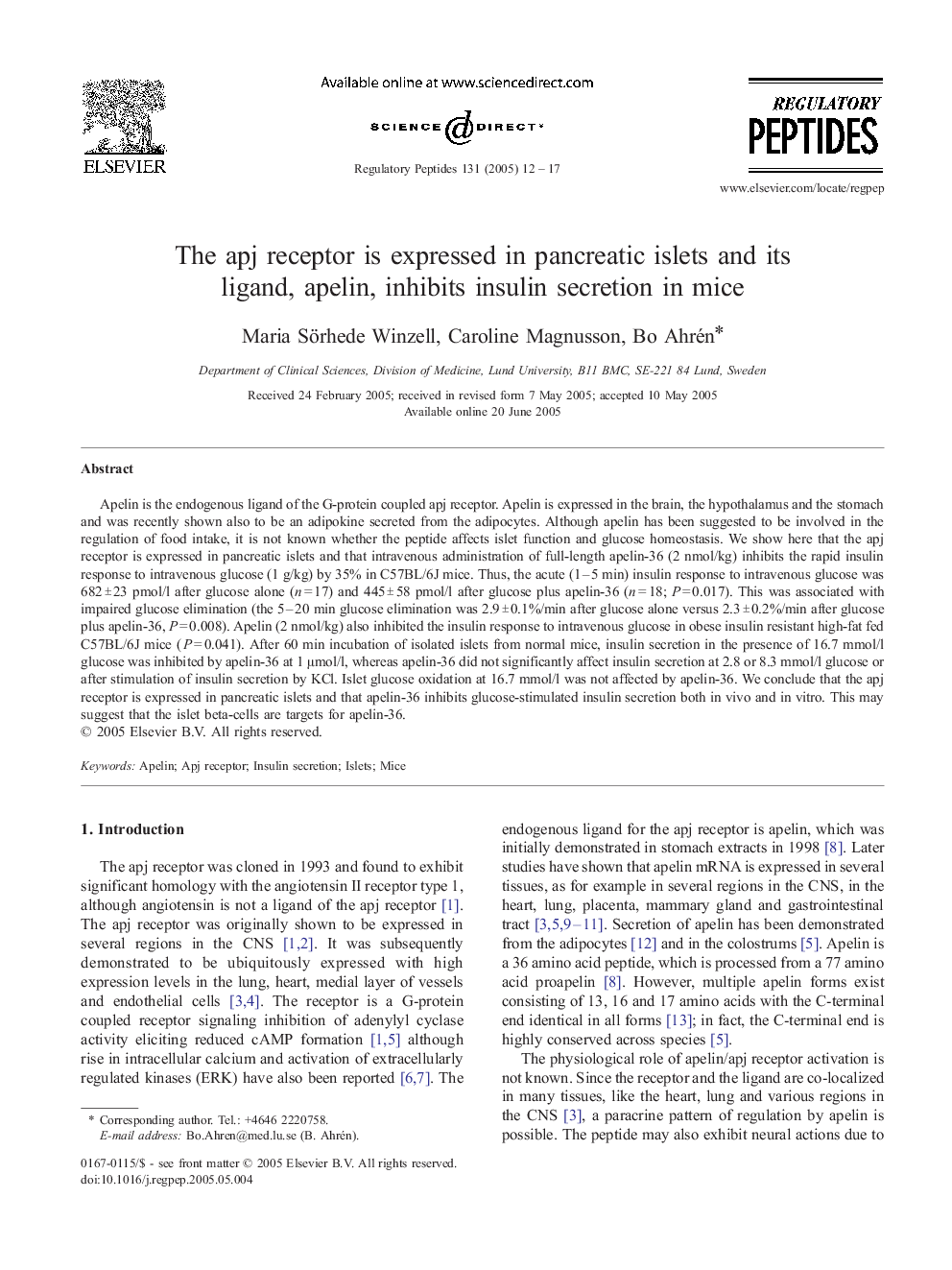| Article ID | Journal | Published Year | Pages | File Type |
|---|---|---|---|---|
| 9894362 | Regulatory Peptides | 2005 | 6 Pages |
Abstract
Apelin is the endogenous ligand of the G-protein coupled apj receptor. Apelin is expressed in the brain, the hypothalamus and the stomach and was recently shown also to be an adipokine secreted from the adipocytes. Although apelin has been suggested to be involved in the regulation of food intake, it is not known whether the peptide affects islet function and glucose homeostasis. We show here that the apj receptor is expressed in pancreatic islets and that intravenous administration of full-length apelin-36 (2 nmol/kg) inhibits the rapid insulin response to intravenous glucose (1 g/kg) by 35% in C57BL/6J mice. Thus, the acute (1-5 min) insulin response to intravenous glucose was 682 ± 23 pmol/l after glucose alone (n = 17) and 445 ± 58 pmol/l after glucose plus apelin-36 (n = 18; P = 0.017). This was associated with impaired glucose elimination (the 5-20 min glucose elimination was 2.9 ± 0.1%/min after glucose alone versus 2.3 ± 0.2%/min after glucose plus apelin-36, P = 0.008). Apelin (2 nmol/kg) also inhibited the insulin response to intravenous glucose in obese insulin resistant high-fat fed C57BL/6J mice (P = 0.041). After 60 min incubation of isolated islets from normal mice, insulin secretion in the presence of 16.7 mmol/l glucose was inhibited by apelin-36 at 1 μmol/l, whereas apelin-36 did not significantly affect insulin secretion at 2.8 or 8.3 mmol/l glucose or after stimulation of insulin secretion by KCl. Islet glucose oxidation at 16.7 mmol/l was not affected by apelin-36. We conclude that the apj receptor is expressed in pancreatic islets and that apelin-36 inhibits glucose-stimulated insulin secretion both in vivo and in vitro. This may suggest that the islet beta-cells are targets for apelin-36.
Related Topics
Life Sciences
Biochemistry, Genetics and Molecular Biology
Biochemistry
Authors
Maria Sörhede Winzell, Caroline Magnusson, Bo Ahrén,
